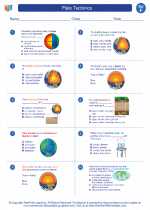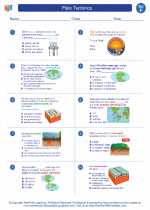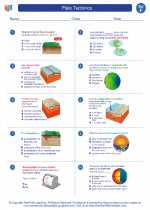RNA: Ribonucleic Acid
RNA, or ribonucleic acid, is a molecule that is essential for the coding, decoding, regulation, and expression of genes. It is a single-stranded molecule that plays a crucial role in the synthesis of proteins.
Types of RNA
- Messenger RNA (mRNA): Carries the genetic information from the DNA in the nucleus to the ribosomes in the cytoplasm, where protein synthesis occurs.
- Transfer RNA (tRNA): Helps in the translation process by bringing the amino acids to the ribosome, where they are linked together to form a protein.
- Ribosomal RNA (rRNA): Makes up the ribosomes, which are the protein-synthesizing machinery in the cell.
Functions of RNA
RNA plays several critical roles in the cell, including:
- Transcription: RNA is synthesized from a DNA template in a process called transcription.
- Translation: mRNA carries the genetic code from the DNA to the ribosomes, where it is translated into a specific sequence of amino acids to form a protein.
- Regulation of gene expression: Certain types of RNA, such as microRNA (miRNA) and small interfering RNA (siRNA), play a role in regulating the expression of genes.
Structure of RNA
RNA is composed of nucleotides, which consist of a sugar (ribose), a phosphate group, and a nitrogenous base (adenine, guanine, cytosine, or uracil). Unlike DNA, RNA contains the base uracil (U) instead of thymine (T).
Study Guide
Here are some key points to remember when studying RNA:
- Understand the different types of RNA and their functions.
- Learn the process of transcription and translation, and the role of RNA in these processes.
- Be able to identify the components of a RNA nucleotide and how they differ from those of a DNA nucleotide.
- Explore the role of RNA in regulating gene expression.
Understanding RNA is crucial for comprehending the central dogma of molecular biology and the overall functioning of the cell.
[Rna] Related Worksheets and Study Guides:
.◂Science Worksheets and Study Guides Sixth Grade. Plate Tectonics
Worksheet/Answer key Plate Tectonics
Plate Tectonics  Worksheet/Answer key
Worksheet/Answer key Plate Tectonics
Plate Tectonics  Worksheet/Answer key
Worksheet/Answer key Plate Tectonics
Plate Tectonics  Vocabulary/Answer key
Vocabulary/Answer key Plate Tectonics
Plate Tectonics  Vocabulary/Answer key
Vocabulary/Answer key Plate Tectonics
Plate Tectonics  Vocabulary/Answer key
Vocabulary/Answer key Plate Tectonics
Plate Tectonics  Vocabulary/Answer key
Vocabulary/Answer key Plate Tectonics
Plate Tectonics 

 Worksheet/Answer key
Worksheet/Answer key
 Worksheet/Answer key
Worksheet/Answer key
 Vocabulary/Answer key
Vocabulary/Answer key
 Vocabulary/Answer key
Vocabulary/Answer key
 Vocabulary/Answer key
Vocabulary/Answer key
 Vocabulary/Answer key
Vocabulary/Answer key

The resources above cover the following skills:
EARTH AND SPACE SCIENCE
Earth’s Systems
Use evidence to explain how different geologic processes shape Earth’s history over widely varying scales of space and time (e.g., chemical and physical erosion; tectonic plate processes; volcanic eruptions; meteor impacts; regional geographical features, including Alabama fault lines, Rickwood Caverns, and Wetumpka Impact Crater).
Provide evidence from data of the distribution of fossils and rocks, continental shapes, and seafloor structures to explain past plate motions.
Use models to explain how the flow of Earth’s internal energy drives a cycling of matter between Earth’s surface and deep interior causing plate movements (e.g., mid-ocean ridges, ocean trenches, volcanoes, earthquakes, mountains, rift valleys, volcanic islands).